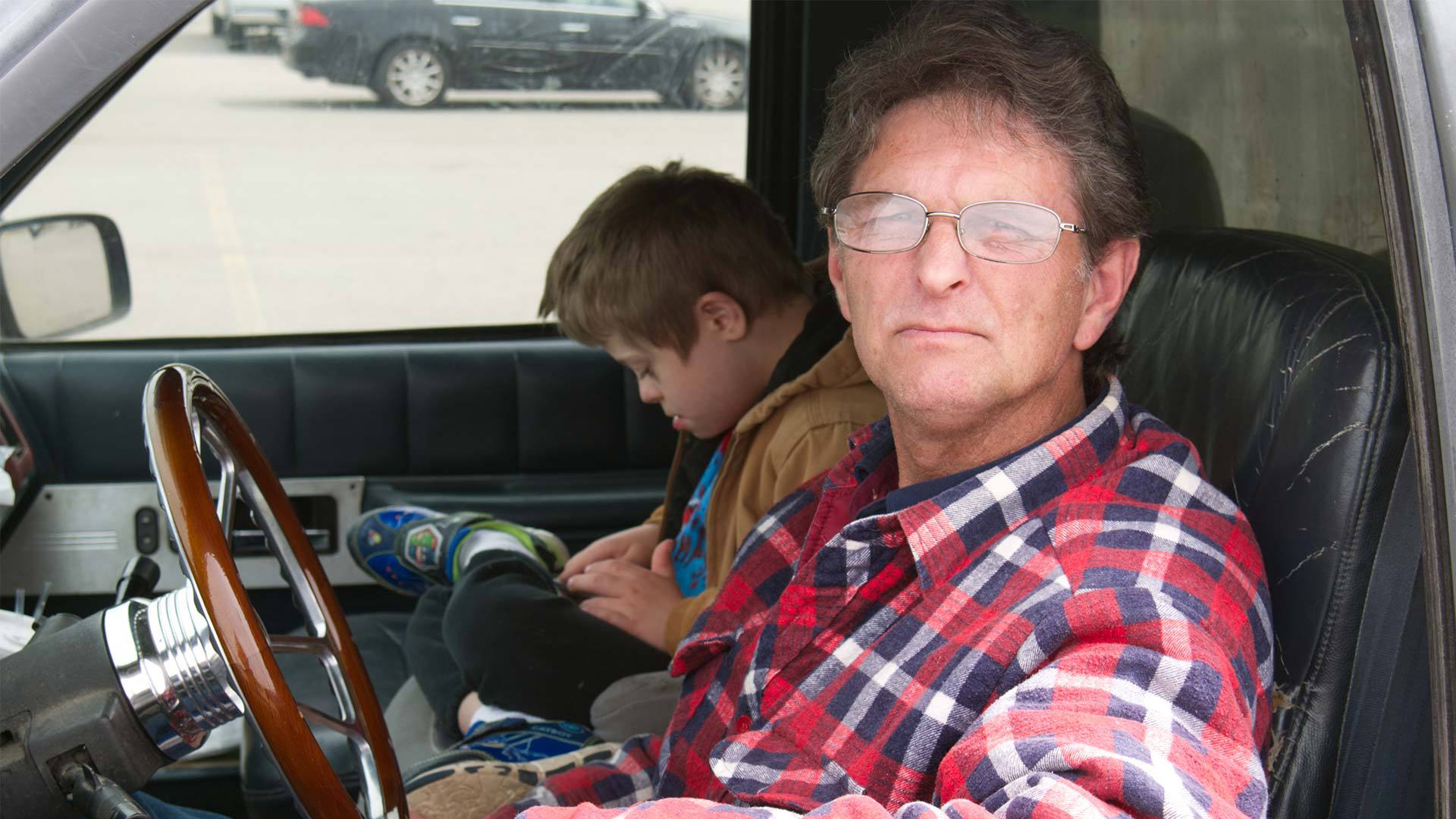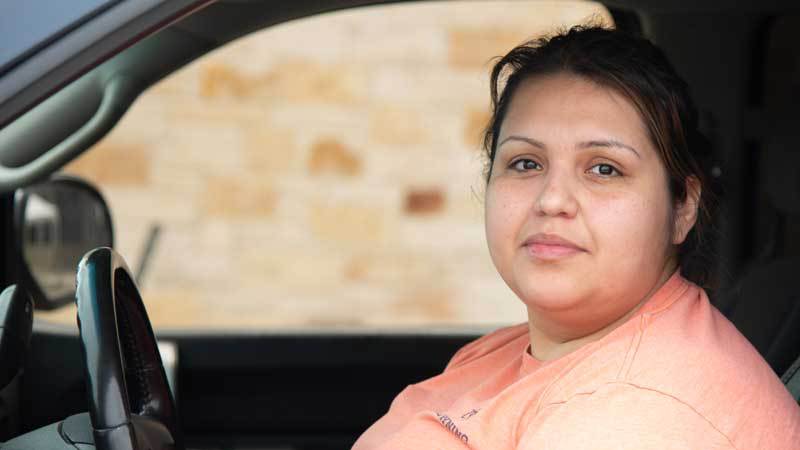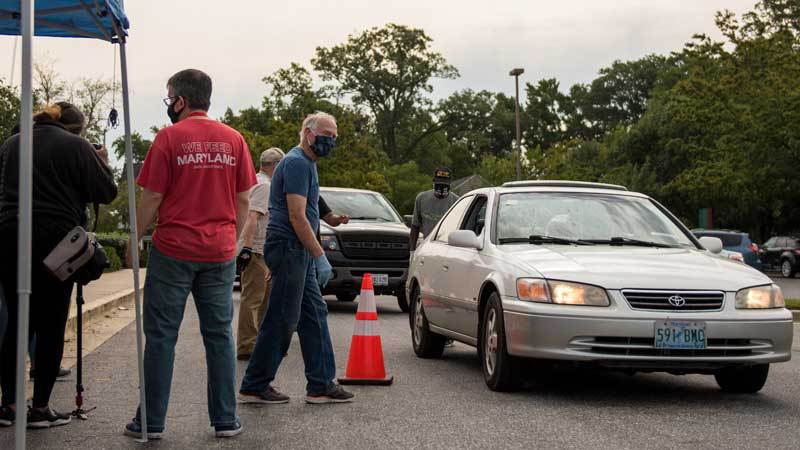Overcoming Stigma from the Voices of People We Serve

The seemingly simple task of asking for help is easier said than done. Many of the first-time food recipients MFB currently serves has had their livelihoods abruptly altered by the COVID-19 pandemic, forcing them to navigate financial and food insecurity. While struggling to pay bills on time and grappling with hunger pangs was once foreign, it has now become their new way of life.
Those brave enough to share their stories recall never needing assistance with securing basic needs. When this pride in self-sufficiency is damaged, emotions like fear, embarrassment, shame, and anxiety can take over. But once people face these feelings head-on and overcome the harrowing stigma associated with food assistance, for many the outcome is joy, satisfaction, and restored hope.
Hunger Does Not Discriminate
The COVID-19 pandemic has thrown countless individuals and families into an economic tailspin. With so many jobs in jeopardy and threats of diminished government assistance, Marylanders of all backgrounds are experiencing struggles like never before.
Take 65-year-old Sandy R., a food recipient from Essex, Md. Sandy is one of the family owners of a motorcycle shop that, pre-pandemic, was a thriving business. Unfortunately, a sharp decrease in the number of patrons visiting her shop has slowed the business down immensely.
“We’re lucky if we make like $200 or $300 a month,” said Sandy. “You’ve still got to pay your gas and electric bill and your insurance, so how much money is left over from that?”
This Essex resident has always been a hard worker, so seeking food assistance was a humbling experience for her. Since first arriving at a food pantry in March 2020, however, she’s managed to triumph over her initial anxieties.
“I was embarrassed… I never had to have help… I’ve always had money to spend,” she explained. “With COVID, you don’t have the money you used to spend, so I had to do something to supplement my housing, and this is it; this is well-needed… But I’m not embarrassed anymore.”
“I’m 60 years old and didn’t think I’d ever need help. But, I’ve been out of work for some time now…Things are just tight right now…Everyone needs help sometimes, and this time I need help. There’s no grocery stores nearby – you have to travel a bit to get to one. So I appreciate this a lot – it’s easier to pick up food here. This will help me, at least for a good month.”
Early last year, Jackie D., a food recipient and frequent visitor of Baltimore Area Community Health Services (BACHS) Healthcare, had a stable job as a teacher’s assistant and could independently provide for her two-year-old daughter. But when the pandemic shut down schools, this 24-year-old lost her job, her apartment, and her positive outlook on life.
Forced to move back in with her parents and apply for assistance from the Department of Social Services (DSS) and the Supplemental Nutrition Assistance Program (SNAP), Jackie describes her newfound dependency as “embarrassing” and “humiliating.” Despite these emotions, she’s reaped substantial benefits from frequenting the pantry.
“BACHS Healthcare has helped me with services, supplemental food, support, and a bus pass to get around,” Jackie said.
Hunger can ravage the lives of all individuals, young and old. With the universal need for food, the Maryland Food Bank hopes it can continue to encourage people in need to push beyond these difficult emotions to seek help.

Our Resilient Neighbors in Need
“You definitely see a little bit of shame from people the first time. You can see it in their eyes… I think it’s hard for everybody to just show up and ask for food,” said Pastor Rodrigo Albarran-Torres, pantry coordinator at Ministerio Puerta de Paz in Odenton, Md.
Operating the food pantry in the parking lot of his church since early in the pandemic, Pastor Rodrigo has heard countless testimonies from individuals and families who never expected to be battling food insecurity.
“One person that came as he was driving by actually cried in front of me,” Pastor Rodrigo said. “He told me, ‘you don’t know how hard it is for me to do this. I have studied, I have a Bachelors, I had a job and then when COVID hit, I lost everything. It is very hard for me to come and ask for help because I’ve never done it. I’ve always been able to do things by myself.’”
“I was a little bit embarrassed in the beginning, but it was the best thing for me to do. Once I got here, everyone was very nice so there wasn’t much else for me to be nervous about. There were things that I needed to go buy, and now with this, I no longer need to buy them. I’m getting the food that I need; the pantry has helped me a lot. The people that don’t have jobs and have needs have to take advantage of it.”
Besides receiving nutritious food, one of the most rewarding aspects of visiting a food pantry comes from the sense of community and care that fills the air at distribution events.
“It’s all in the way you treat people,” said Pastor Rodrigo. “We treat everybody as a person and then you start seeing people come back happy and thankful. They’re telling other people to come here and it becomes like a network.”
Sometimes, regular visitors become so comfortable and thankful that they pay it forward and become volunteers, like Trinead R., who started going to the Ministerio Puerta de Paz food pantry in fall 2020.
“We lost a lot of hours at work, so I started coming here for food,” said Trinead. “The pastors made me feel comfortable right away. They are very kind to people. Everything that they get, they give it out with lots of love and kindness and that motivates me to continue coming… They never made me feel like a visitor. It became kind of like a family. Now I volunteer too with my daughters. I feel very happy, very satisfied, to be able to give back to others in need. I come at 7:00 AM ready to receive and to help for the 9:00 AM distribution. My daughters wake me up at 6:30. We’re ready.”

Assisting those who may be suffering in silence and helping them conquer psychological hurdles to food assistance is important to the food bank. It is our hope that as the current crisis persists and future crises arise, we can continue to help more Marylanders overcome their fears and anxieties to restore the thread of hopefulness in communities across the state.
If you or someone you know is in need of food assistance, please use our Find Food tool to locate a MFB Network Partner near you.
Get updates on our progress in the fight against hunger
Want to see how your involvement directly impacts the well-being of your neighbors in need? Get the latest news sent to your inbox.







